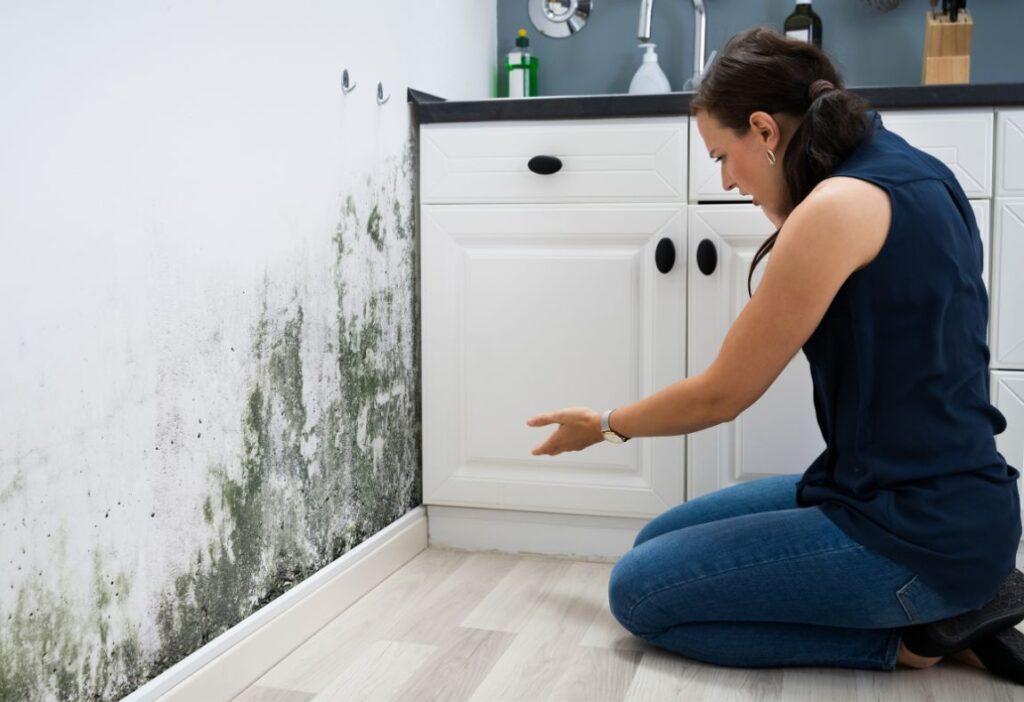Pet Safety and Mold: What Pet Owners Should Know
Mold is a common household problem that can pose a serious effect on human and animal health. While much attention is often given to mold’s effects on people, it’s equally essential for pet owners to understand the risks associated with mold exposure for their furry companions.
This article explores the relationship between pets and mold, focusing on the effect of mold on pets and offering practical advice for maintaining a safe and healthy environment for your beloved animals.
Let’s get started!
Understanding Mold and Its Dangers
Mold is a type of fungus that thrives in damp, humid conditions. It can grow on various surfaces, including walls, ceilings, and floors, and release spores into the air.
These spores can be inhaled, leading to respiratory and other health problems. While humans can experience symptoms like sneezing, coughing, and skin irritation, pets are equally vulnerable to the harmful effects of mold exposure.
The Effect of Mold on Pets
The effect of mold on pets can vary depending on the mold type and the exposure level. Common signs of mold-related health issues in pets include:
- Respiratory Problems – Like humans, pets can suffer from respiratory issues due to mold exposure. Symptoms may include coughing, wheezing, difficulty breathing, and nasal discharge. In severe cases, prolonged exposure can lead to chronic respiratory conditions.
- Allergic Reactions – Pets can develop allergic reactions to mold, manifesting as skin irritation, itching, and rashes. If your pet is scratching excessively or developing skin lesions, mold might be the culprit.
- Neurological Issues – Certain types of mold, such as black mold (Stachybotrys chartarum), can produce mycotoxins that affect the nervous system. Pets exposed to these toxins may exhibit symptoms like tremors, seizures, and behavioral changes.
- Digestive Problems – Ingesting moldy food or water can lead to gastrointestinal issues in pets. Symptoms may include vomiting, diarrhea, and loss of appetite.
Preventing Mold Exposure in Pets
Taking preventive measures and maintaining a clean, dry environment is crucial for pet protection. Here are some steps you can take:
- Control Humidity Levels – Mold thrives in humid conditions, so keeping your home’s humidity below 60% can help prevent mold growth. Use dehumidifiers and ensure proper ventilation in moisture-prone areas, such as bathrooms, kitchens, and basements.
- Fix Leaks Promptly – Leaky pipes, roofs, and windows can create damp environments that encourage mold growth. Regularly inspect your home for leaks and repair them promptly to prevent water accumulation.
- Clean Regularly – Regular cleaning can help prevent mold from taking hold. Pay special attention to areas where moisture is likely to accumulate. Use mold-resistant cleaning products to keep these areas dry and clean.
- Monitor Pet Areas – Pets often spend time in specific areas of the house, such as kennels, beds, and litter boxes. Ensure these areas are kept clean and dry. Wash pet bedding regularly and use mold-resistant materials when possible.
- Professional Mold Inspection – If you suspect mold in your home, consider hiring a professional inspector. They can identify hidden mold and recommend appropriate mold remediation measures to ensure your home is safe for you and your pets.
Separate Pets and Mold with a Thorough Professional Inspection
In conclusion, understanding how mold affects pets is crucial for maintaining a healthy home environment. Mold can severely affect pets, leading to respiratory, allergic, neurological, and digestive issues.
By taking preventive measures with inspections and addressing mold problems promptly, pet owners can protect their furry friends from the harmful effects of mold and ensure their well-being.
Mold Fix ensures that your pets don’t suffer any adversities from mold exposure. We offer quality and reliable mold removal services to ensure your pets are safe and healthy.
Contact us today!



